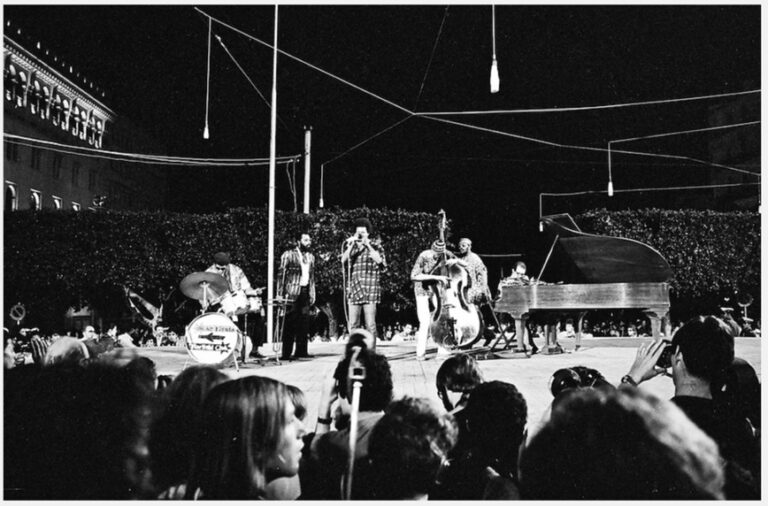This assembled interview centers both Elaine Mokhtefi and Le premier festival culturel panafricain d’Alger 1969 (PANAF), a festival which she organized and attended as a part of the Algerian Ministry of Information, noting it as an exemplary instance of the power of performance at the nexus of political ideology, activist history, and the subsequent nostalgia for that era of liberation. It is equally an attempt to overcome a distant relationship to each, reflecting on the potential of oral histories to open up new pathways through the past. This history—of entangled international relations negotiated under the guise of a festive performance, a complicated trajectory of global politics which culminated in a remarkable event of celebration and solidarity—remains understudied, a footnote to more “political” concerns of Third World agendas, decolonial reorderings, and capitalist critiques. Yet through Mokhtefi’s testimony, interwoven with searching tendrils of archival detail, we can see that this festival was not a superficial exaltation in extravagance, but a pivotal moment in foreign affairs. More importantly, through her personal history, we can trace the central role that women played in these politics, if often unacknowledged. Edited in 2020, it also counters the pejorative label of non-essential labor applied to most cultural activities during the contemporary pandemic response to COVID-19.
